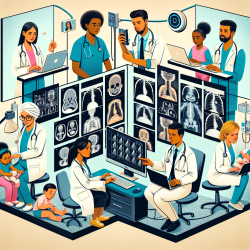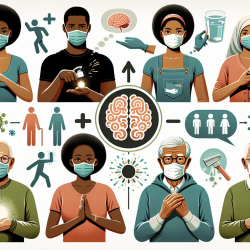Introduction
In our quest to improve mental healthcare for Aboriginal young people, recent research has illuminated pathways that can transform outcomes. The study titled Exploring pathways to mental healthcare for urban Aboriginal young people: a qualitative interview study offers valuable insights into the perceptions of healthcare providers within Aboriginal Community Controlled Health Services (ACCHS). This blog post aims to distill these findings into actionable strategies for practitioners, ensuring that our approaches are both culturally sensitive and effective.
Key Findings and Implications
The study identified several critical themes that can guide practitioners in improving mental healthcare pathways:
- Availability and Use of Tools: There is a significant demand for culturally appropriate screening tools and flexible guidelines tailored to Aboriginal young people. Practitioners should advocate for the development and implementation of such tools to enhance early identification and intervention.
- Initiating and Guiding Care: The collaboration between General Practitioners (GPs) and Aboriginal Health Workers (AHWs) is pivotal. Practitioners should foster these partnerships to facilitate seamless care pathways and ensure that young people receive the support they need from the onset.
- Influencing the Care Pathway: Addressing barriers such as transport, stigma, and cultural safety is crucial. Practitioners should work to create flexible care pathways that accommodate these challenges, ensuring that young people remain engaged in their mental healthcare journey.
- Assessing Future Needs: There is a need for more specialized mental health services within ACCHSs. Practitioners should advocate for resources and funding to support the integration of mental health specialists in these settings, enhancing accessibility and cultural safety.
Implementing Change
For practitioners, implementing the findings of this research involves several steps:
- Advocate for Training: Encourage continuous professional development focused on culturally appropriate care for Aboriginal young people. Training should include the use of existing tools like the Strengths and Difficulties Questionnaire (SDQ) and the development of new resources.
- Foster Collaboration: Build strong relationships between GPs, AHWs, and mental health specialists. This collaboration is key to creating a supportive network that can guide young people through their care pathways.
- Address Barriers: Work with community leaders and organizations to identify and mitigate barriers to care, such as transportation and stigma. This might include providing transport services or creating community awareness programs.
- Secure Resources: Advocate for funding and resources to support the integration of mental health specialists within ACCHSs. This will ensure that young people have access to the care they need in a culturally safe environment.
Encouraging Further Research
While this study provides a solid foundation, further research is needed to refine and expand our understanding of effective mental healthcare pathways for Aboriginal young people. Practitioners are encouraged to engage in research initiatives and contribute to the growing body of knowledge in this area.
Conclusion
By implementing these research findings, practitioners can play a crucial role in enhancing mental healthcare pathways for Aboriginal young people. This not only promises better health outcomes but also empowers communities to thrive. To read the original research paper, please follow this link: Exploring pathways to mental healthcare for urban Aboriginal young people: a qualitative interview study.










